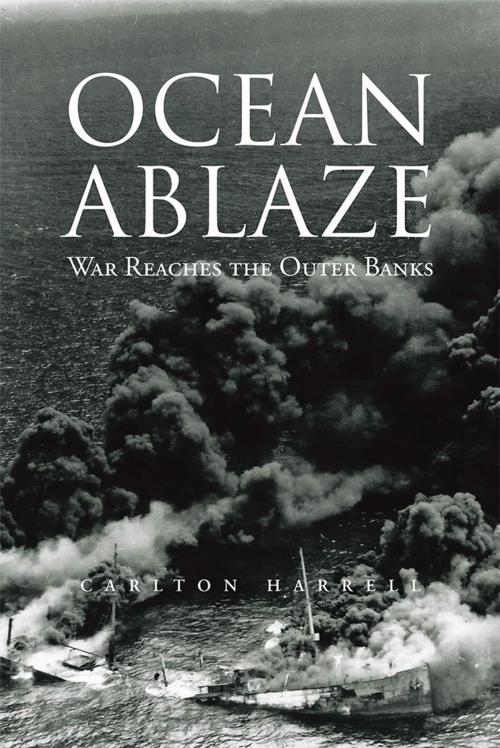| Author: | Carlton Harrell | ISBN: | 9781491817865 |
| Publisher: | AuthorHouse | Publication: | November 29, 2013 |
| Imprint: | AuthorHouse | Language: | English |
| Author: | Carlton Harrell |
| ISBN: | 9781491817865 |
| Publisher: | AuthorHouse |
| Publication: | November 29, 2013 |
| Imprint: | AuthorHouse |
| Language: | English |
Two yellowing envelopes in a long-untouched file, unmistakably of U.S. Army origin but addressed to a North Carolina housewife, caught the attention of her son as he sorted her papers after her death. The postmarks, Virginia Beach, VA., and dated in 1942, were puzzling, as was the official return address: 111th Infantry C.T., Mobile Defense Force. While the 111th regimental combat team could be deciphered, the Mobile Defense Force was not a recognizable term. The letters inside instructed her on the duties of a coast watcher, and evoked memories stored since childhood: The sickening thump of torpedoes striking U.S. ships just off the Currituck Outer Banks and the flare of flames, particularly when a tanker was hit, that were clear even to a youngster on his front porch 8 miles inland. Each boom and pillar of fire revealed that more men were dying in the freezing waters off North Carolina's barrier islands that winter. How did the United States get into such straits that its life was threatened as the Axis juggernauts rolled across Western Europe and Asia? What transpired during the crucial years when the outcome of the war could go against the United States as Axis aggression flooded the Atlantic with U-boats striving to cut the stream of ships laden with weapons, troops, and food flowing to the beleaguered British Isles - the last Allied outpost near the Continent? How did the Allies achieve victory first against the U-boats, then the war, for as Napoleon observed: "It is only a step from victory to disaster. "
Two yellowing envelopes in a long-untouched file, unmistakably of U.S. Army origin but addressed to a North Carolina housewife, caught the attention of her son as he sorted her papers after her death. The postmarks, Virginia Beach, VA., and dated in 1942, were puzzling, as was the official return address: 111th Infantry C.T., Mobile Defense Force. While the 111th regimental combat team could be deciphered, the Mobile Defense Force was not a recognizable term. The letters inside instructed her on the duties of a coast watcher, and evoked memories stored since childhood: The sickening thump of torpedoes striking U.S. ships just off the Currituck Outer Banks and the flare of flames, particularly when a tanker was hit, that were clear even to a youngster on his front porch 8 miles inland. Each boom and pillar of fire revealed that more men were dying in the freezing waters off North Carolina's barrier islands that winter. How did the United States get into such straits that its life was threatened as the Axis juggernauts rolled across Western Europe and Asia? What transpired during the crucial years when the outcome of the war could go against the United States as Axis aggression flooded the Atlantic with U-boats striving to cut the stream of ships laden with weapons, troops, and food flowing to the beleaguered British Isles - the last Allied outpost near the Continent? How did the Allies achieve victory first against the U-boats, then the war, for as Napoleon observed: "It is only a step from victory to disaster. "















